MercoPress. South Atlantic News Agency
Tag: protectionist measures
-
Friday, August 22nd 2014 - 23:36 UTC
WTO rules against Argentina in trade dispute with world powers

The World Trade Organization (WTO) dispute panel ruled on Friday against Argentina in a 2012 case brought by the United States, European Union and Japan against Argentine import licensing rules used to restrict imports.
-
Saturday, October 19th 2013 - 15:58 UTC
Argentine bio-diesel exports to EU threatened by new duties: EC votes on Tuesday

Argentina's bio-diesel industry warned it faces collapse if Europe makes good on a threat to impose stiff duties on their product next month. The European Commission earlier this month moved to raise duties on Argentine and Indonesian bio-fuels in response to alleged dumping.
-
Friday, September 6th 2013 - 01:17 UTC
Cristina Fernandez meets WTO chief and blasts world powers ‘protectionism’
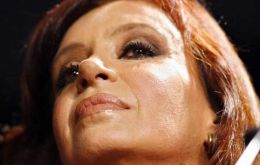
With a busy agenda prior to her G20 Summit address, Argentine President Cristina Fernández renewed her criticism of so called world powers’ “protectionism” and warned about a “crisis of the multilateral system” both in the economic and political arenas.
-
Tuesday, May 7th 2013 - 09:28 UTC
IMF again warns Argentina about protectionist and foreign currency exchange policies
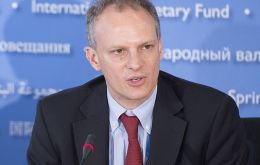
The International Monetary Fund Director for the Western Hemisphere, Alejandro Werner, warned on Monday about the “negative effect” that the existence of two foreign currency exchange markets and protectionist policies bring to Argentina.
-
Saturday, May 4th 2013 - 10:08 UTC
Brazil furious with Cristina Fernandez non-kept promises freezes relation
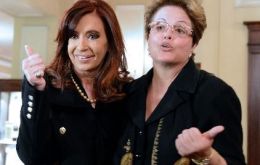
Brazil has virtually frozen political and economic relations with Argentina following serious discrepancies that were confirmed during the recent summit of presidents Cristina Fernandez with Dilma Rousseff who cut short the originally scheduled two-day visit to Buenos Aires.
-
Saturday, May 4th 2013 - 10:03 UTC
Uruguay admits trade and economic relations with Argentina ‘couldn’t be worse’
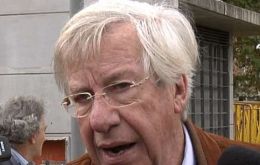
Vice-president Danilo Astori admitted on Friday that economic-trade relations with Argentina continue to deteriorate and seriously question Mercosur and Uruguay must therefore speed the search for other alternatives.
-
Thursday, January 3rd 2013 - 00:40 UTC
Uruguayan president believes Argentine economy “can’t remain closed much longer”
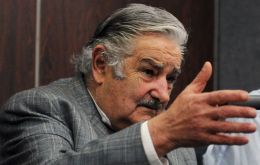
President Jose Mujica anticipated that the Argentine economy can’t remain ‘closed for much more time’ (protectionist) and forecasted that 2013 will be a ‘clear year’ for Uruguay regarding economic issues.
-
Saturday, December 29th 2012 - 06:26 UTC
Spain lifts ban on Argentine bio-diesel; annual exports total 1.1bn dollars

Spain has taken a step back with import restrictions on Argentina’s bio-diesel applied in a reprisal move after Argentine president Cristina Fernandez decided to seize control of energy company YPF, subsidiary of Spanish Repsol, earlier this year.
-
Wednesday, October 24th 2012 - 05:03 UTC
Mexico asks WTO to begin dispute procedure over Argentina’s trade restrictions
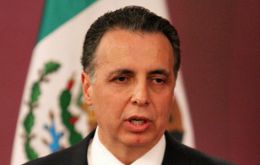
Mexico will ask a World Trade Organization panel to adjudicate a dispute over trade restrictions with Argentina, said Economy Minister Bruno Ferrari.
-
Wednesday, September 5th 2012 - 05:40 UTC
Brazil applies 25% tariff increase on 100 imported goods; another 100 list in the making
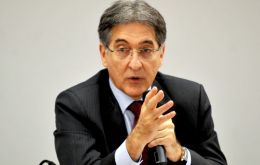
The Brazilian government approved a 25% tariff increase on an additional list of 100 goods from outside Mercosur and at the same time announced the implementation of a monitoring scheme for those items’ prices in the domestic market to avoid unduly increases.
